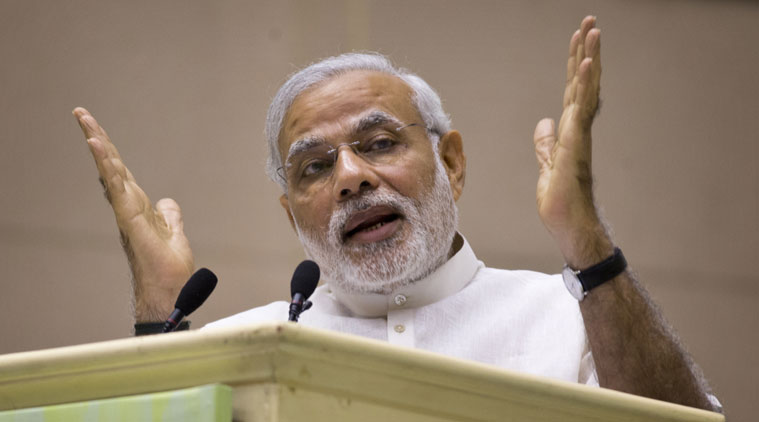Stay updated with the latest - Click here to follow us on Instagram
PM steps in, no changes in Juvenile Justice Act just yet
The demand to amend the JJ Act has been hanging fire for many years now.
 Prime Minister Narendra Modi.
Prime Minister Narendra Modi.
The Union cabinet did not take up proposed amendments to the Juvenile Justice Act on Tuesday after Prime Minister Narendra Modi said at the meeting that since the matter was sensitive in nature, it should be taken up only after a group of senior ministers had studied its finer points. The amendments would enable heinous offenders aged between 16 and 18 to be tried under the Indian Penal Code (IPC) instead of the JJ Act.
Sources said that when the matter came up for discussion, Modi made it clear that since Parliament is set to reconvene soon, on April 20, it would make sense that senior ministers studied the Act in detail before it is passed by the cabinet and then tabled in Parliament once more.
The cabinet had previously cleared the Juvenile Justice (Care and Protection of Children) Bill, 2014 and sent it to Parliament. However, the Parliamentary standing committee on human resource development, in a report tabled in February, asked for the provision of trying 16-18-year-olds under the IPC to be reviewed as it would go against articles 14 and 15(3) of the Constitution.
[related-post]
A group of ministers, including Finance Minister Arun Jaitley, External Affairs Minister Sushma Swaraj, Law Minister Sadanand Gowda and Parliamentary Affairs Minister Venkaiah Naidu, will now take a closer look at the provisions of the Act before it is tabled in next week’s cabinet meeting.
As per the note sent to the cabinet by the Women and Child Development Ministry, juvenile offenders aged between 16-18, if accused of heinous crimes like rape and murder, should be subjected to an expert evaluation under aegis of the juvenile justice board. If the board deems it fit, they should be tried under the IPC rather than the JJ Act.
Under the existing JJ Act, the maximum punishment is confinement in a home for a maximum period of three years. Despite the clear rejection by the standing committee, the ministry stuck to its stand on the matter, though it did change its stance on some other issues.
For example, it decided not to push for its earlier demand that a juvenile offender, if he or she is 21 by the time the trial starts, must be tried under the adult justice system.
The demand to amend the JJ Act has been hanging fire for many years now
In a move that is expected to benefit around 48 lakh government employees and 55 lakh pensioners, the Union Cabinet on Tuesday cleared the release of an additional installment of Dearness Allowance (DA) to Central Government employees and Dearness Relief (DR) to pensioners at the rate of six per cent increase over the existing rate of 107 per cent.
The release of this additional installment of DA and DR will be with effect from January 1.
“Hence, central government employees as well as pensioners are entitled for DA/DR at the rate of 113 per cent of the basic pay with effect from 01.01.2015. The increase is in accordance with the accepted formula based on the recommendations of the 6th Central Pay Commission,” the government said in a statement.
The combined impact on the exchequer on account of both DA and DR would be to the tune of Rs 6,762.24 crore per annum and Rs 7,889.34 crore in the 2015-16 financial year (that is, for a period of 14 months from January 2015 to February 2016), the government added. ENS







